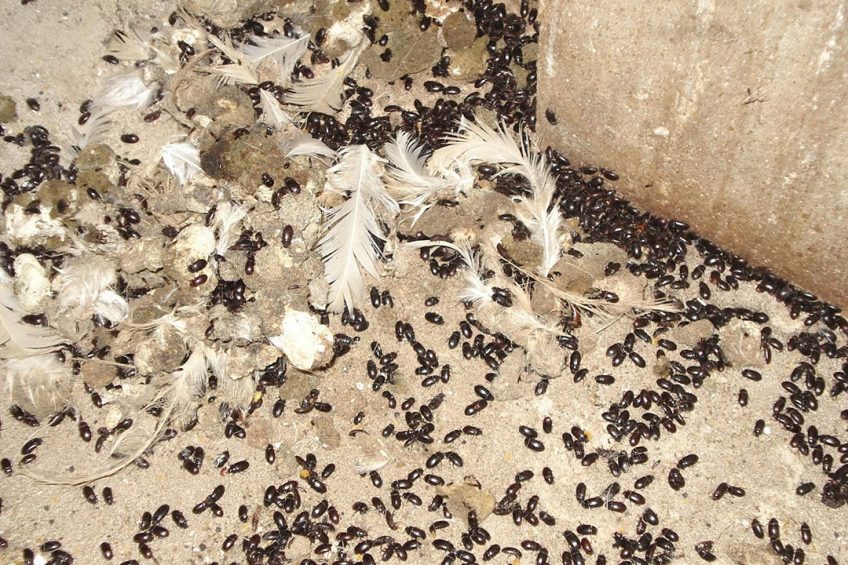Fungi to control lesser mealworm in chicken sheds

Australian research is looking into the use of non-toxic fungus-based pesticides (mycopesticides) to control lesser mealworm populations.
Lesser mealworm (Alphitobius diaperinus), or darkling or litter beetle, is a significant pest in the poultry industry due to its ability to carry avian and foodborne pathogens and damage the structures of broiler houses through tunnelling. Insecticides are currently being used to control the lesser mealworm pest in Australia, but these insecticides potentially leave some residues in the litter that the lesser mealworm builds up resistance to over time. An additional objective of this latest research project is to test the potential of using the mycopesticide in conjunction with insecticides to reduce overall chemical usage and maximise control of lesser mealworm populations.
Parasite to insects
2 specific species of fungi that can act as a parasite to insects have been identified as potential alternative control agents for lesser mealworm. Both fungi, which are natural pathogens of lesser mealworm and are not toxic to birds or mammals, have been formulated into mycopesticides.
“What we’re doing now is testing the mycopesticide under various conditions including different litter use practices and different floor types in meat chicken sheds,” said technical officer Steven Rice from the Department of Agriculture and Fisheries in Queensland. “We’re conducting field trials…to compare the mycopesticide in full litter replacement and partial litter re-use systems. We’re running the trials through the seasons so we can compare the fungi’s impact on the lesser mealworm populations in winter to what happens in the warmer months.” Rice noted that the initial results look promising and that the mycopesticide appears to reduce lesser mealworm populations under both litter systems.
 Gradual drop in sick birds
Gradual drop in sick birds
Animal health in the poultry sector will improve in the coming years. The reasons are, among other things, breeding, vaccine development, better feed, housing and management. The need for antibiotic usage will also decrease.
Annie Lane, research manager at the AgriFutures Chicken Meat Program, said the development of an effective fungal-based control for the lesser mealworm has the potential to significantly benefit the Australian chicken meat industry. “With this research we have the chance to not only optimise a new natural control method for lesser mealworm but also increase sustainable practices in chicken meat production.”












